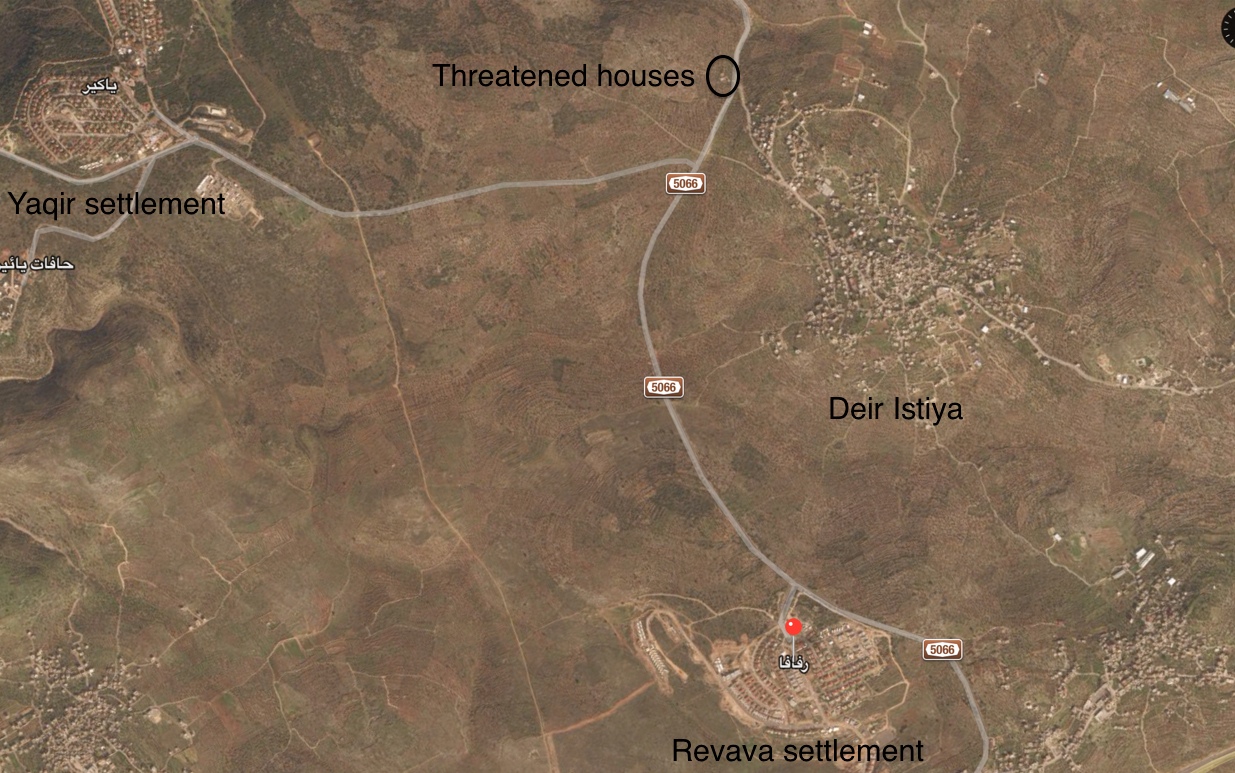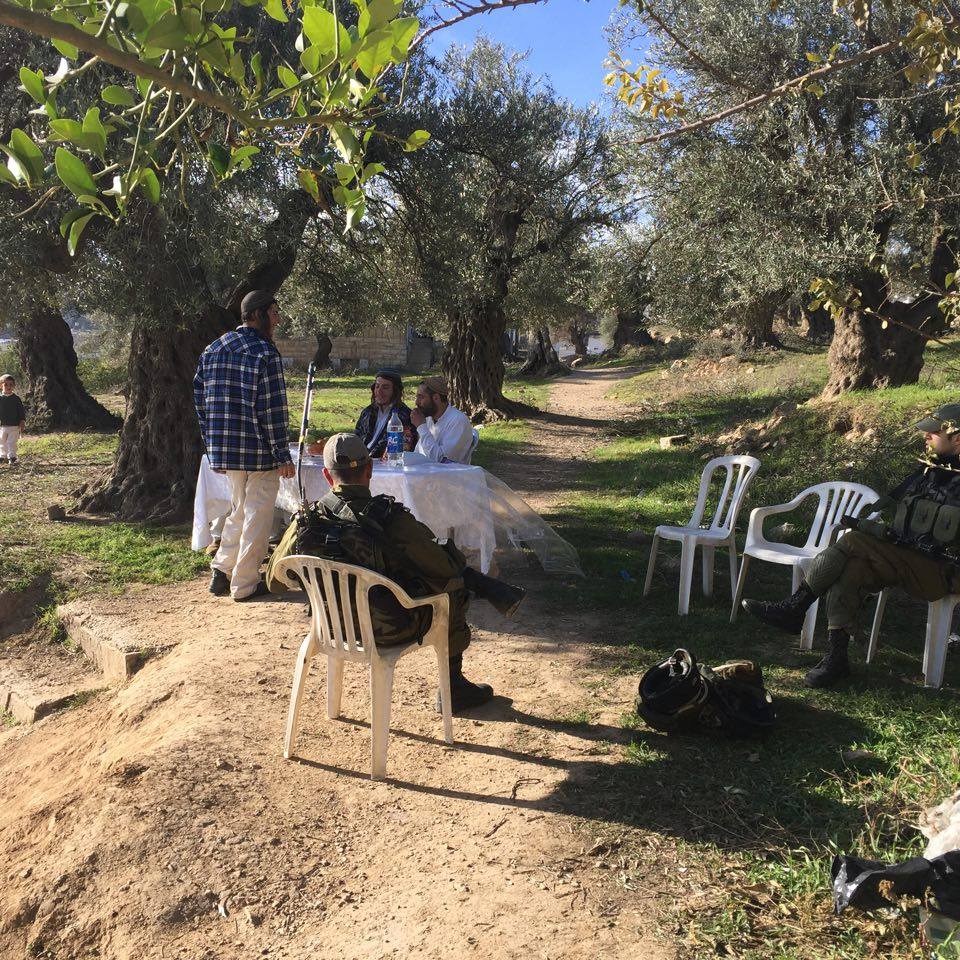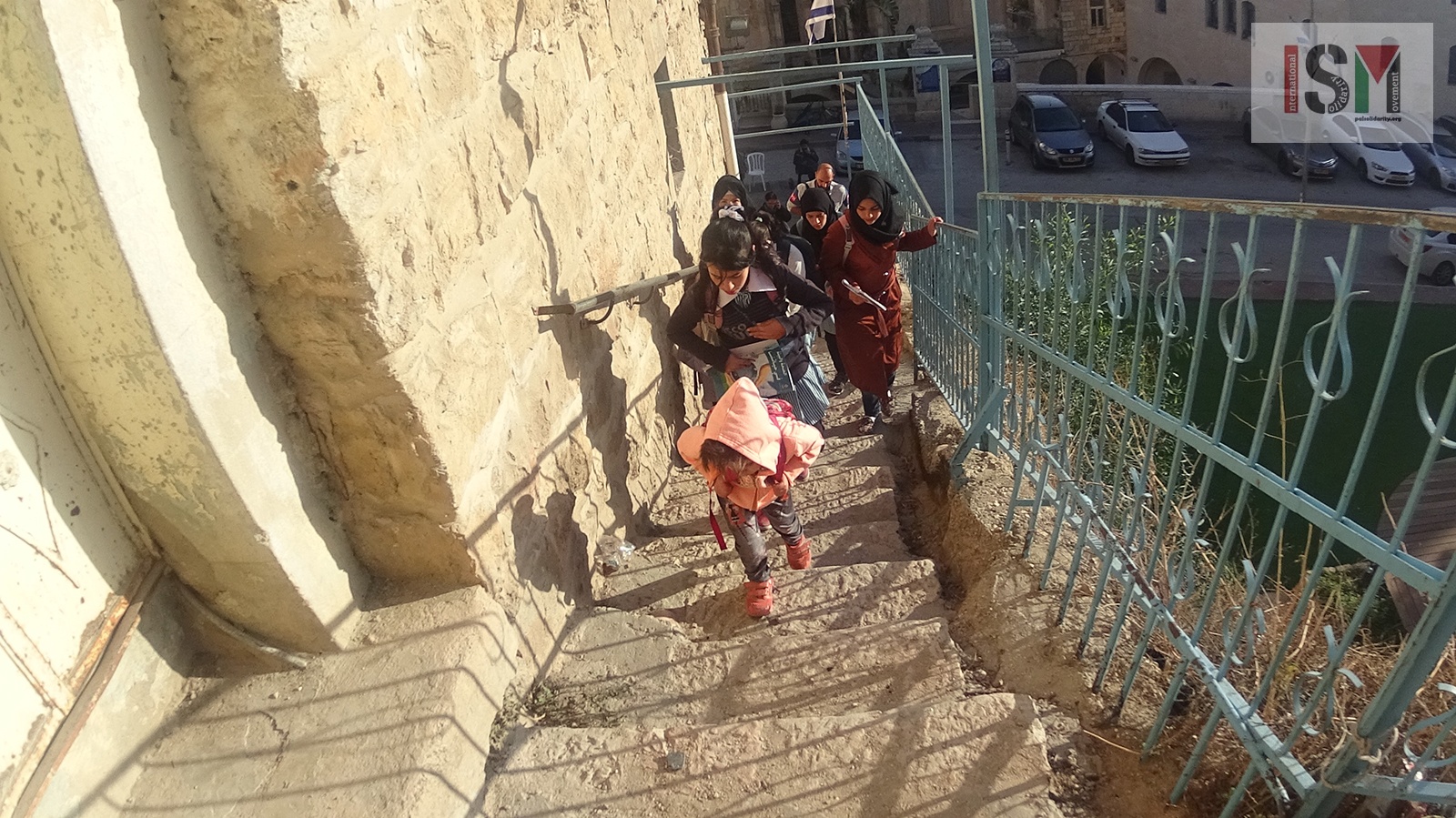Tag: Settler violence
-
Israeli forces invade homes and threaten families with nine children in Deir Istyia
November 30th, 2015 | International Solidarity Movement with IWPS, Huwwara team | Deir Istyia, occupied Palestine Deir Istyia, in Salfit district, is a village of 4000 inhabitants who mostly live on agriculture. The Salfit district has 19 villages and 24 settlements. Land confiscation is ongoing in the area and many of the settlements are…
-
Arbitrary arrest of local activists as settlers lay siege to soumud house in Hebron
28th November 2015 | International Solidarity Movement, al-Khalil team | Hebron, occupied Palestine Yesterday night, Israeli forces arrested two activists from the local activist group Youth Against Settlement in occupied al-Khalil (Hebron). Illegal settlers, under the protection of the Israeli forces, then layed siege to the YAS center, the Soumud house, trapping everyone inside. Israeli…
-
Israeli forces and settlers increase efforts to force Palestinians out and silence observers
21st November 2015 | International Solidarity Movement, al-Khalil team | Hebron, occupied Palestine Monday 2nd November 2015, Israeli forces again attempted to prevent international observers from monitoring a checkpoint in a flashpoint location in occupied al-Khalil (Hebron). Settlers from the illegal settlements in al-Khalil physically attacked internationals while soldiers where standing idly by watching. As…



